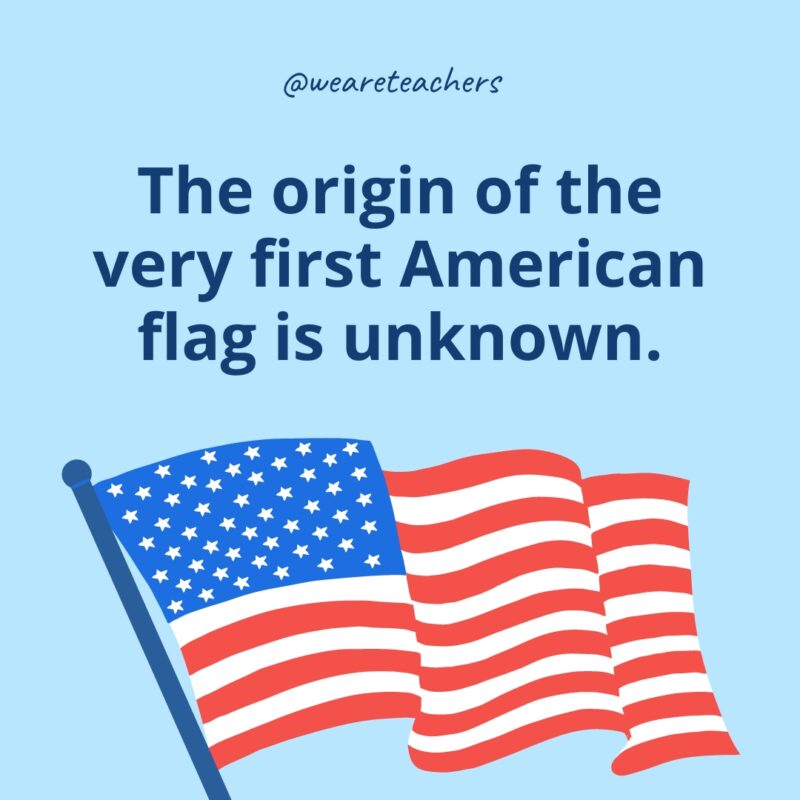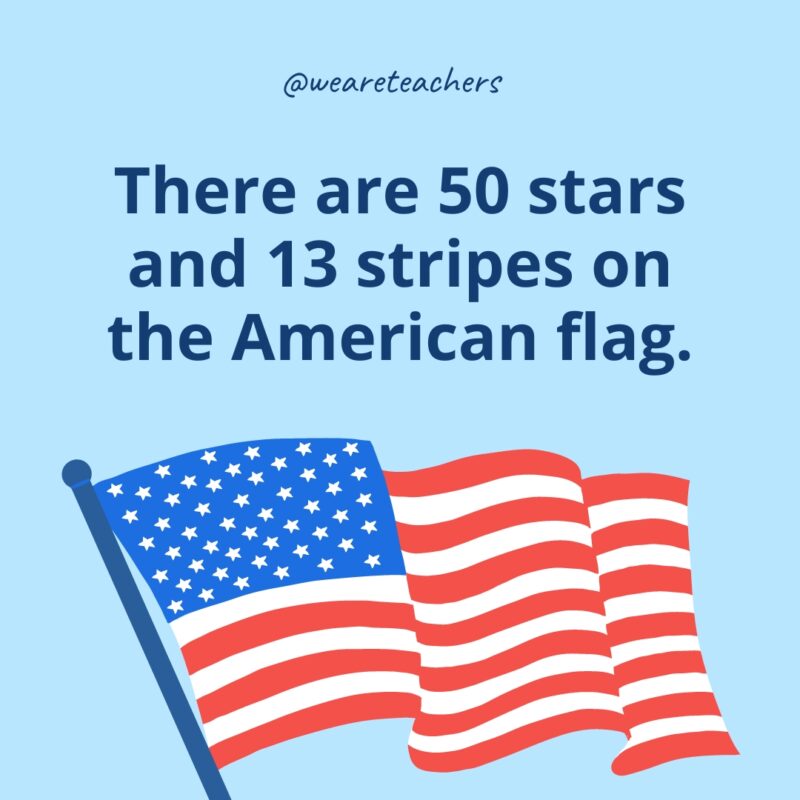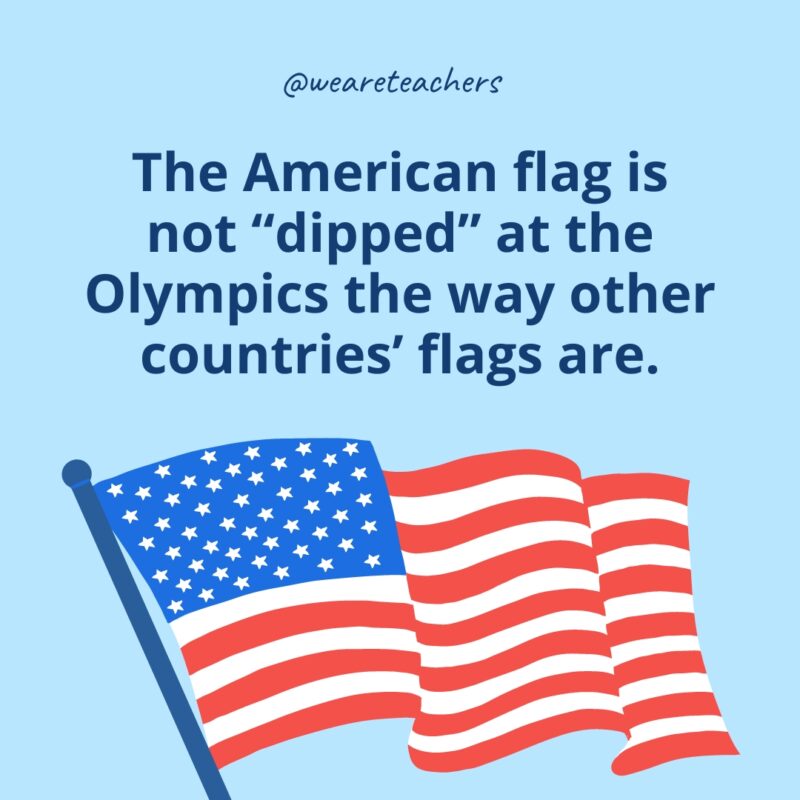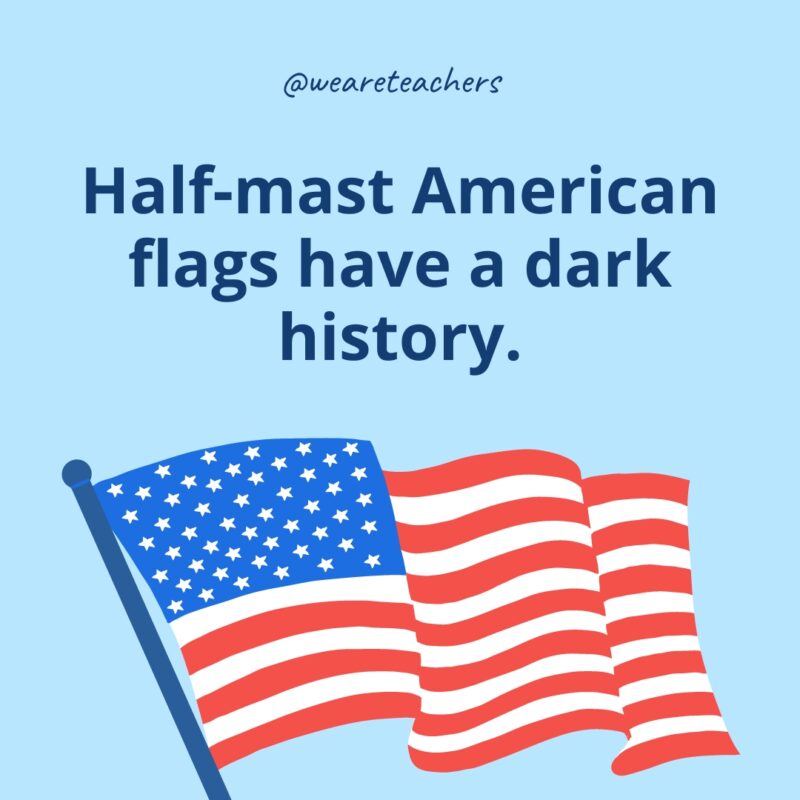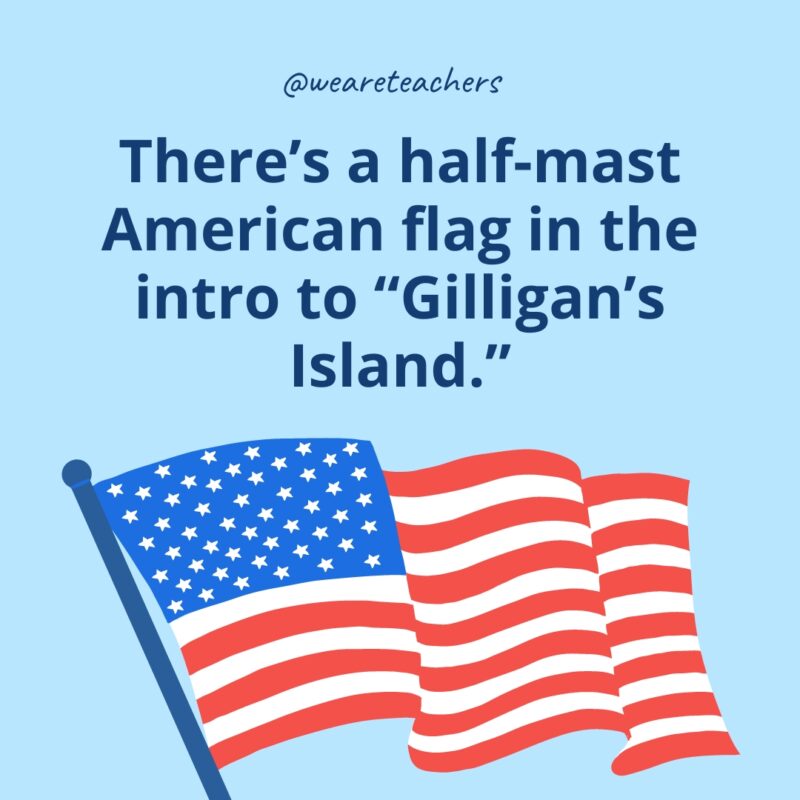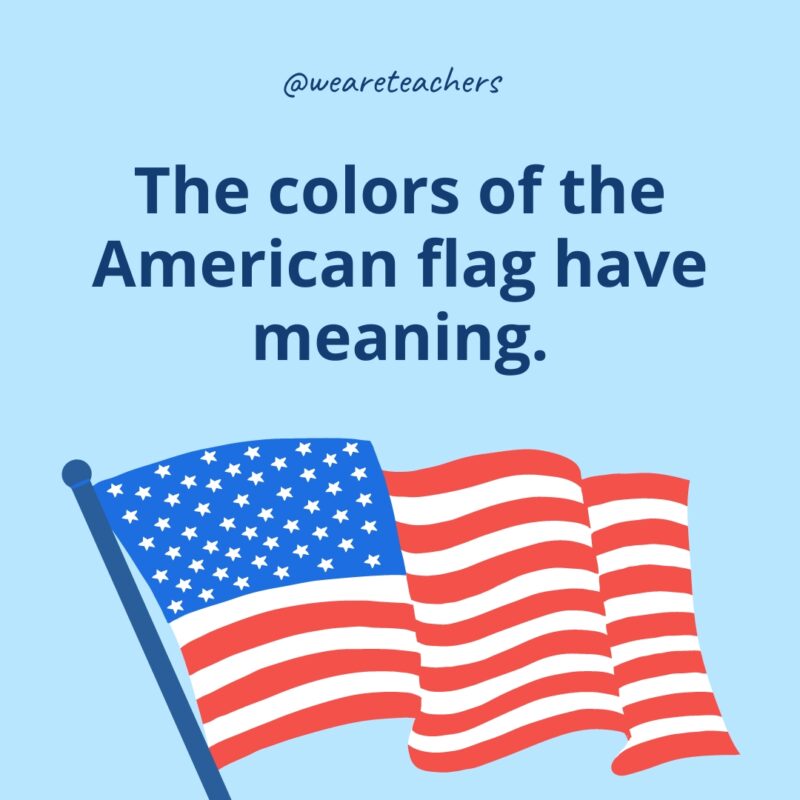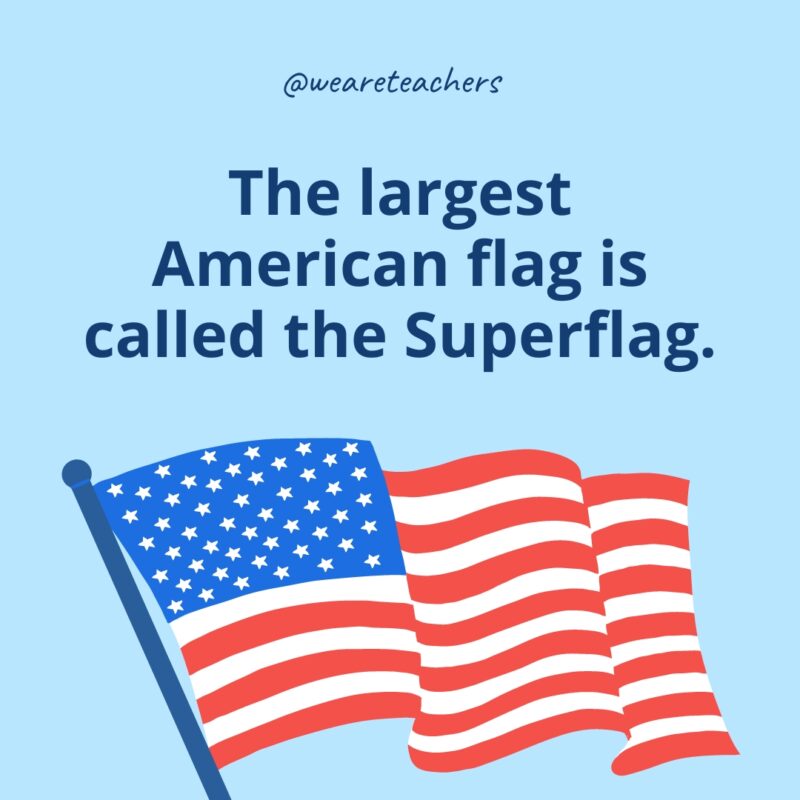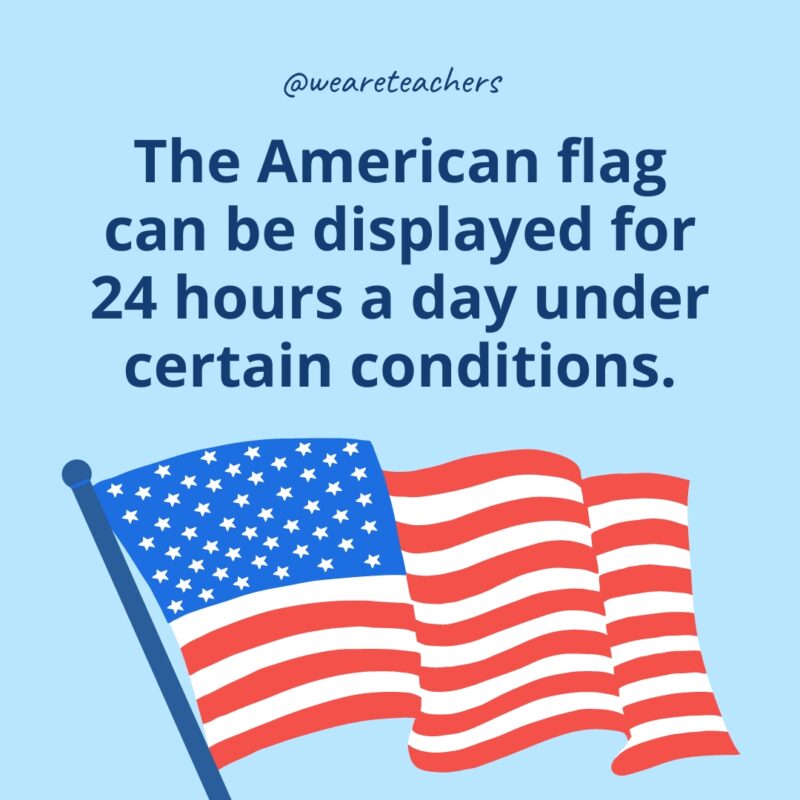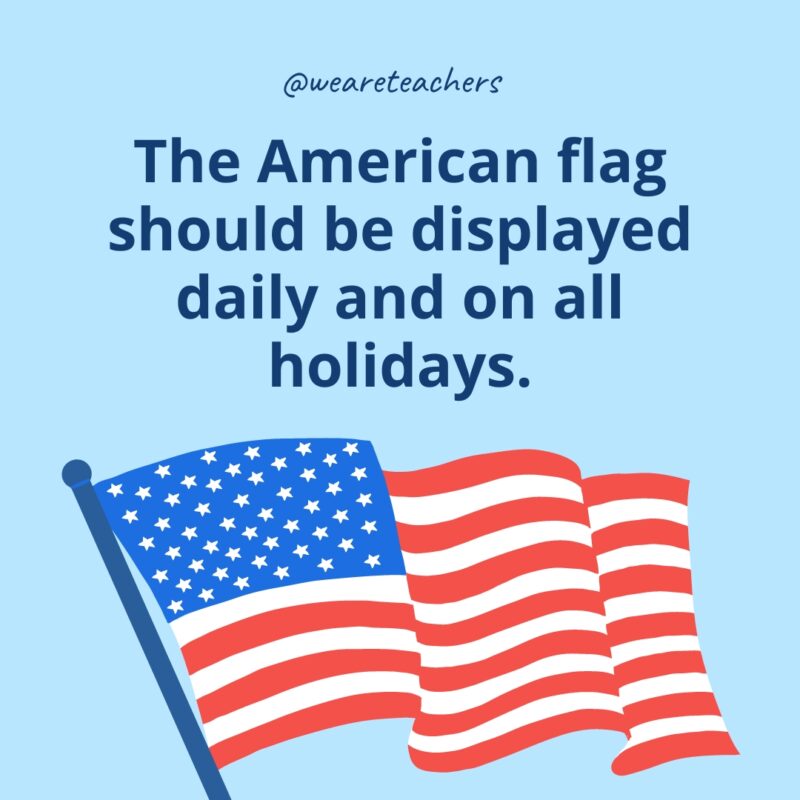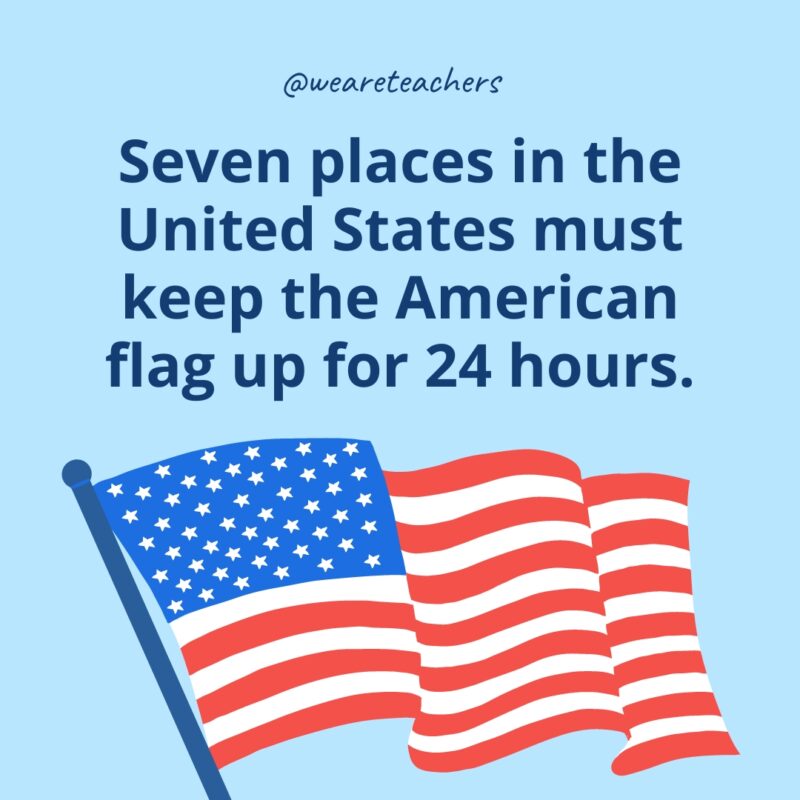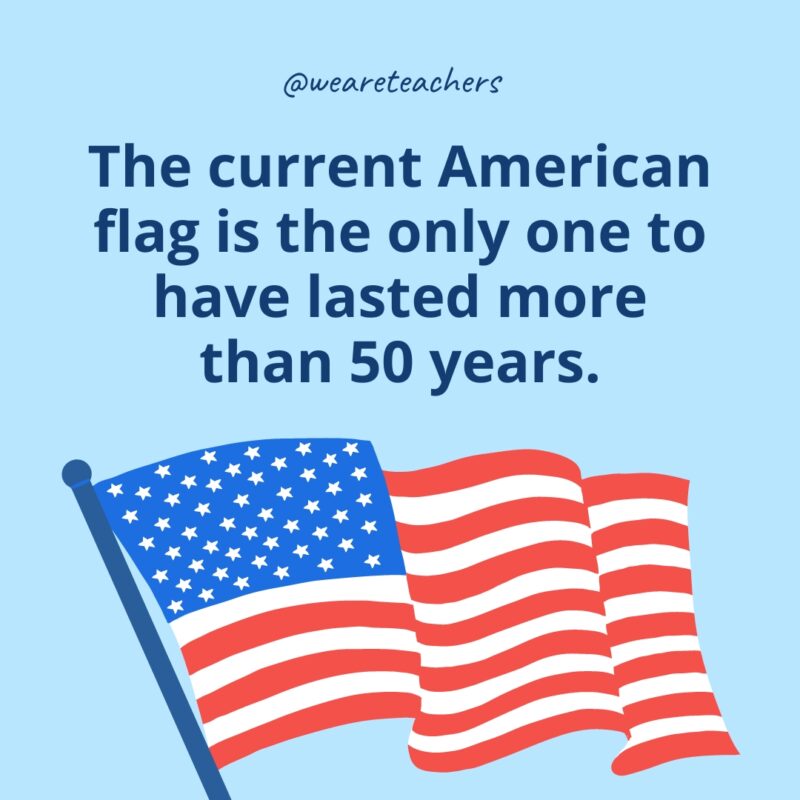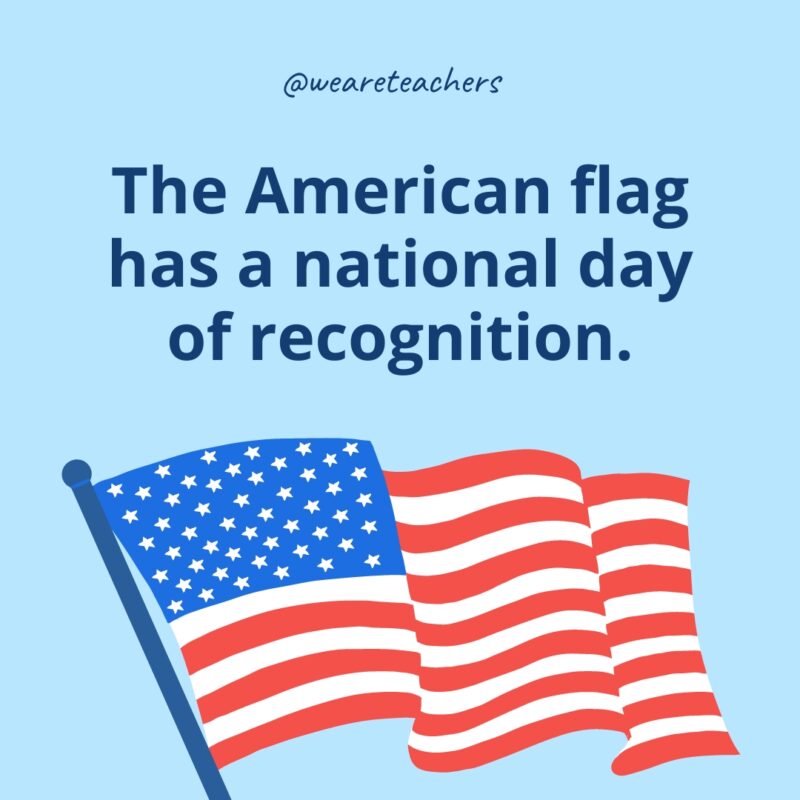We see it proudly displayed across the nation, but how much do we really know about our national flag? Every year on Flag Day, we have an opportunity to learn more about this important symbol and its history. We’ve put together this list of fascinating American flag facts to share and discuss in the classroom.
American Flag Facts
The origin of the very first American flag is unknown.
Among some historians, it’s believed that New Jersey Congressman Francis Hopkinson designed the first American flag and that it was later sewn by Philadelphia seamstress Betsy Ross. But there’s no official account!
The original American flag’s owner called it “Old Glory.”
Back in the 1800s, Captain William Driver started a trend when he shouted “Old Glory!” as his flag opened for the first time. The flag, which initially had 24 stars and is known as the Star-Spangled Banner, survived through the Civil War and is now a primary artifact at the National Museum of American History.
There are 50 stars and 13 stripes on the American flag.
The stars represent the 50 states and the stripes represent the 13 original colonies.
The American flag inspired “The Star-Spangled Banner.”
Poet Francis Scott Key was so inspired after seeing the American flag flying over Baltimore’s Fort McHenry that he wrote “The Star-Spangled Banner” on September 14, 1814. Over a century later, it officially became the national anthem in 1931.
The American flag inspired the Pledge of Allegiance.
In 1892, the flag inspired James B. Upham and Francis Bellamy to write the Pledge of Allegiance, which was published in a magazine called The Youth’s Companion.
A high school student designed the 50-star American flag.
In 1958, 17-year-old Robert G. Heft designed the 50-star flag as a school project to reflect Hawaii and Alaska joining the United States. Initially, he received a B– on his project, but after President Eisenhower picked Heft’s flag design as the new flag, he got an A!
We’ve had 27 versions of the American flag.
Over the years, the flag has been modified on multiple occasions—27 times to be exact! Each time a state joined the union, a star was added.
There are five American flags on the moon.
While Neil Armstrong was the first to place an American flag on the moon, five additional Apollo missions ended with astronauts doing the same.
The American flags on the moon have all turned white.
After more than 40 years, the American flags planted on the moon have all turned bleach-white after decades of exposure to the elements.
There’s an American flag on Mount Everest.
In 1963, American mountaineer and scientist Barry Bishop took both the American flag and the flag of the National Geographic Society to the summit of Mount Everest.
You can still use an American flag that’s touched the ground.
This may be one of the most surprising American flag facts. Many believe that if a flag touches the ground, it needs to be destroyed or burned. That’s not true. According to the American Legion, “As long as the flag remains suitable for display, even if washing or dry-cleaning (which is an acceptable practice) is required, the flag may continue to be displayed.”
American flags should be disposed of in a “dignified manner.”
In the unfortunate event that a flag is damaged beyond repair, dispose of it with dignity by burning it. Check your area for official flag-burning ceremonies on Memorial Day or the 4th of July.
The American flag is not “dipped” at the Olympics the way other countries’ flags are.
During the Parade of Nations portion of the Olympics Opening Ceremonies, athletes carrying their nation’s flag dip as they march past the different heads of state. According to the United States Flag Code, our flag should never be dipped to any other person or thing. So, the American flag is the only one during the parade that does not make this gesture.
The American flag is worn backward on military uniforms.
According to The Institute of Heraldry, flag patches on military uniforms should be worn with the star field always facing front to mimic a flag blowing in the wind as soldiers charge into battle.
Half-mast American flags have a dark history.
Dating back to 1612, the crew of a British vessel made the somber journey home with the Union Jack at half-mast in honor of their fallen captain.
There’s a half-mast American flag in the intro to “Gilligan’s Island.”
Watch the intro of the first season of Gilligan’s Island, and if you look closely, at the 22-second mark you’ll see a flag flying at half-staff as The Minnow leaves the harbor. This was because these portions of the pilot were filmed on November 22, 1963—the day President John F. Kennedy was assassinated.
The colors of the American flag have meaning.
According to the American Legion, “white signifies purity and innocence; red, hardiness and valor; and blue signifies vigilance, perseverance, and justice.”
The largest American flag is called the Superflag.
Previously the record holder for the world’s biggest flag, the largest American flag is called the Superflag and it weighs 3,000 pounds. No wonder it needs 130 people (or more) just to move it!
The American flag can be displayed for 24 hours a day under certain conditions.
According to federal law, unless the weather is bad, the flag should be displayed from sunrise to sunset. In situations where the flag needs to be on display for all 24 hours, all that’s needed is proper illumination to ensure that the flag can be seen in the dark.
The American flag should be displayed daily and on all holidays.
Weather permitting, the flag should be visible on or near the main administration buildings of all public institutions, in or near every schoolhouse during school days, and in or near every polling place on election days.
Seven places in the United States must keep the American flag up for 24 hours.
Presidential laws and proclamations require that the flag is always on display at the following places: the White House, Fort McHenry National Monument, Flag House Square, the United States Marine Corp Memorial, on the Battle Green of the town of Lexington, Massachusetts, United States Customs Ports of Entry, and the grounds of the National Memorial Arch.
You can order an American flag that has flown at the Capitol.
Want a flag that has actually flown at the U.S. Capitol in Washington, D.C.? The program through which you can order one began in 1937 when a member of Congress requested a flag that had flown over the U.S. Capitol. Click here to learn more!
The current American flag is the only one to have lasted more than 50 years.
As mentioned, the flag has gone through 27 changes, but the current version has lasted the longest. That’s because no states have joined the union since 1959.
The American flag has a national day of recognition.
On May 30, 1916, Flag Day, which celebrates the anniversary of the Flag Resolution of 1777, was established by the proclamation of President Woodrow Wilson. It falls every year on June 14.
Only one state celebrates Flag Day as a state holiday.
You might be surprised to learn that Flag Day isn’t a federal holiday. In fact, Pennsylvania is the only state that celebrates it as a state holiday.
Enjoy these American flag facts? Check out these 4th of July facts for kids!
For more articles like this, be sure to subscribe to our newsletters to be alerted when they’re posted.


